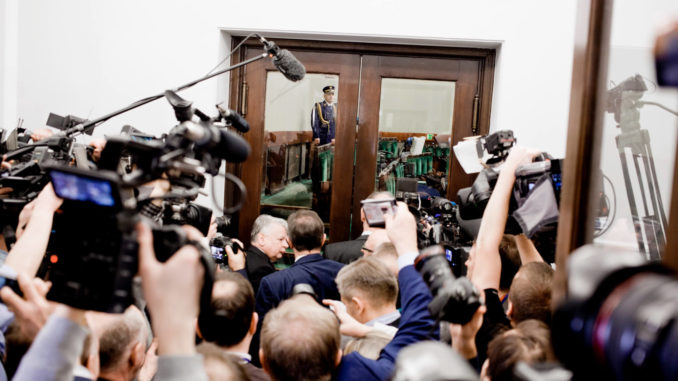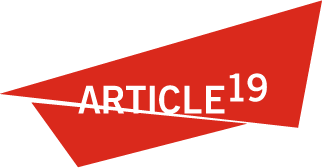
Ahead of World Press Freedom Day, the four international Special Rapporteurs on freedom of expression have released their 2018 Joint Declaration on Media Independence and Diversity in Digital Age. The Joint Declaration responds to a variety of new and old threats to independence and diversity of the media, setting out the standards that states have to meet to ensure genuine protection for press freedom in the modern world.
These threats are varied and come from a range of actors: the Special Rapporteurs highlight hostile statements from public officials, the abusive use of government power, physical attacks, harassment and intimidation towards individual journalists and impunity for these attacks, and emerging online threats. Importantly, the Joint Declaration recognises the challenges faced by the media in the digital economy and changes in media economic models, including the need to find ways to counter the effects of digital companies.
Independent well-resourced media are under serious economic pressure. The special mandates highlight the importance of a favourable economic environment for the media sectors and measures to support diverse media landscape. It is also timely that they address the role of online platforms in facilitating freedom of expression and access to information, and the need to find innovative ways to counter current digital business models.
Brought together by ARTICLE 19 and the Centre for Law and Democracy, the special rapporteurs have issued a Joint Declaration on contemporary challenges to freedom of expression each year since 1999. ARTICLE 19 welcomes the historical 20th Joint Declaration, which sets out important standards in this area.
The 2018 Joint Declaration provides a set of recommendations for States to better protect media freedom in the digital age:
- Create an enabling environment for seeking, receiving and imparting information and ideas, including through legislation that fully complies with international freedom of expression standards; and guaranteeing respect for media independence and, in particular, editorial independence and the independence of media regulatory bodies;
- Be scrupulous about promoting and protecting media freedom and independence during elections, including by respecting the right of the media to report freely during election periods and to criticise government policy and political figures;
- Provide protection to journalists and others who are at risk of being attacked for exercising their right to freedom of expression, to launch effective investigations when such attacks do occur, so that those responsible may be held accountable, and to offer effective remedies to victims.
- Not conduct surveillance, including of a digital nature, against media outlets or journalists unless this is provided by law and is necessary and proportionate to protect a legitimate State interest and put in place effective practical and enforceable measures to avoid identifying confidential journalistic sources indirectly;
- Put in place effective systems to ensure transparency, fairness and non-discrimination in access by the media to State resources, including public advertising and create an economic environment which supports a diverse media landscape. They should ensure that all aspects of media markets, including advertising, content production and distribution, operate in a fair and competitive manner which is protected against anti-competitive practices on the part of those holding strong or dominant market positions.
The Joint Declaration offers recommendations to other relevant stakeholders:
- Politicians and public officials to refrain from taking actions which undermine the independence of the media, in particular during the election periods, such as interfering politically in the operations of or taking commercial control over regulatory bodies or commercial, community or public service media, or putting pressure on online platforms to engage in content regulation.
- Media outlets and online platforms to take seriously their responsibility to respect human rights, enhance their professionalism and social responsibility, including potentially by adopting codes of conduct and fact-checking systems, and putting in place self-regulatory systems or participating in any existing systems, to enforce them.
- Online platforms to operate as transparently as possible, in particular by giving users the tools they need to identify the creators of content and understand its prioritisation (or lack thereof) on their platforms and to support, in a non-discriminatory and technologically neutral way, the work of the media without unduly influencing that work and while respecting media independence, whether by helping to distribute content, sharing revenue or in other ways.
The four international experts on freedom of expression are:
- David Kaye, UN Special Rapporteur on Freedom of Opinion and Expression;
- Harlem Desir, the Representative on Freedom of the Media of the Organization for Security and Cooperation in Europe;
- Edison Lanza, Special Rapporteur on Freedom of Expression for the Organisation of American States; and
- Lawrence Mute, Special Rapporteur on Freedom of Expression and Access to Information for the African Commission on Human and People’s Rights.
